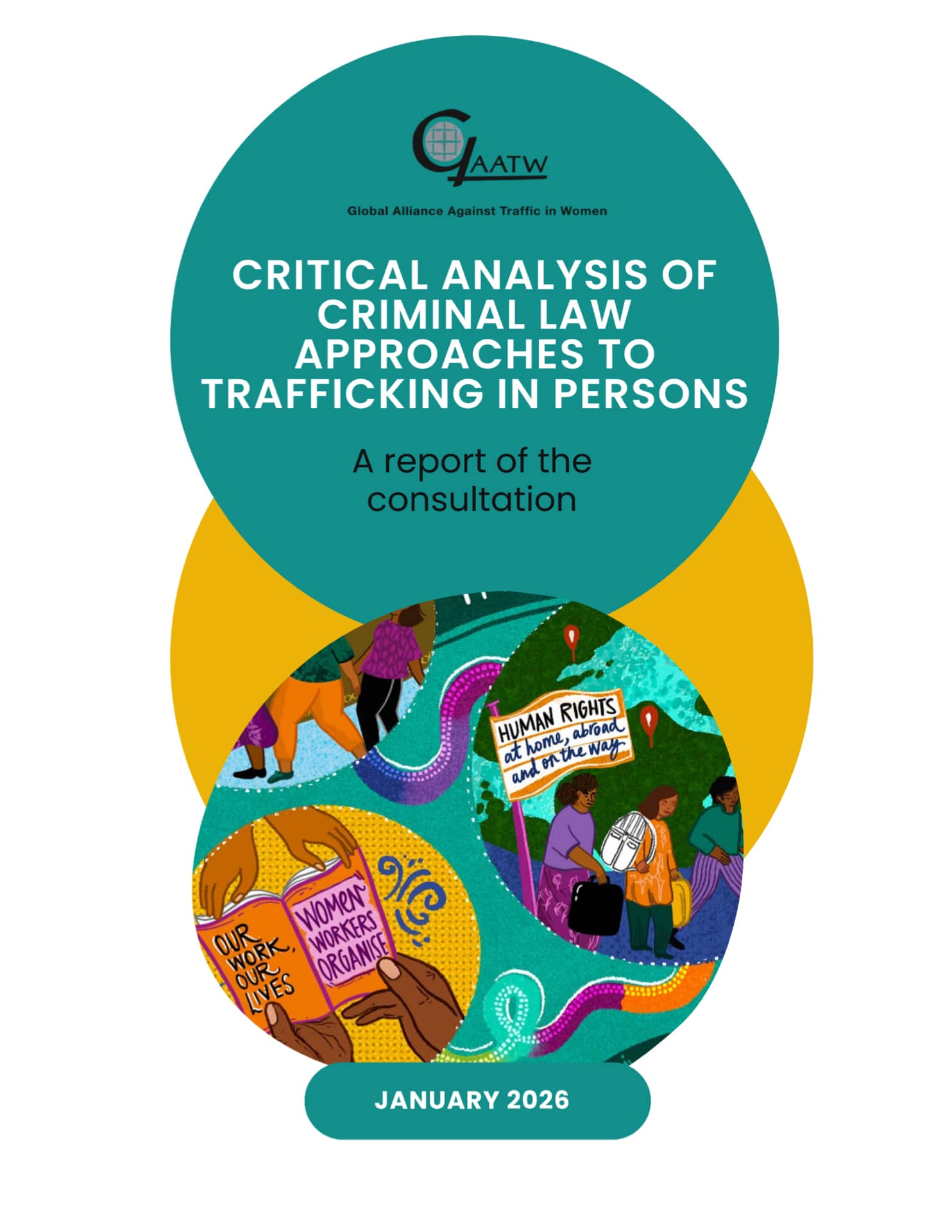
Critical Analysis of Criminal Law Approaches to Trafficking in Persons: A report of the consultation
- Details
GAATW and our allies played a key role in lobbying for an internationally recognised definition of trafficking, yet from the outset we were wary of an exclusively crime control approach. Over the years, we have continued to note with frustration that although the criminal law framework is so invested in punishing the traffickers, the actual results of those efforts are not very encouraging.
Now twenty-five years after the UN Trafficking Protocol entered into force, it is an appropriate time for us to reflect in depth on the criminal law approach to trafficking. Whilst GAATW has long pointed out the negative impacts of this approach, we have not looked outside the criminal law or questioned what alternatives might exist.
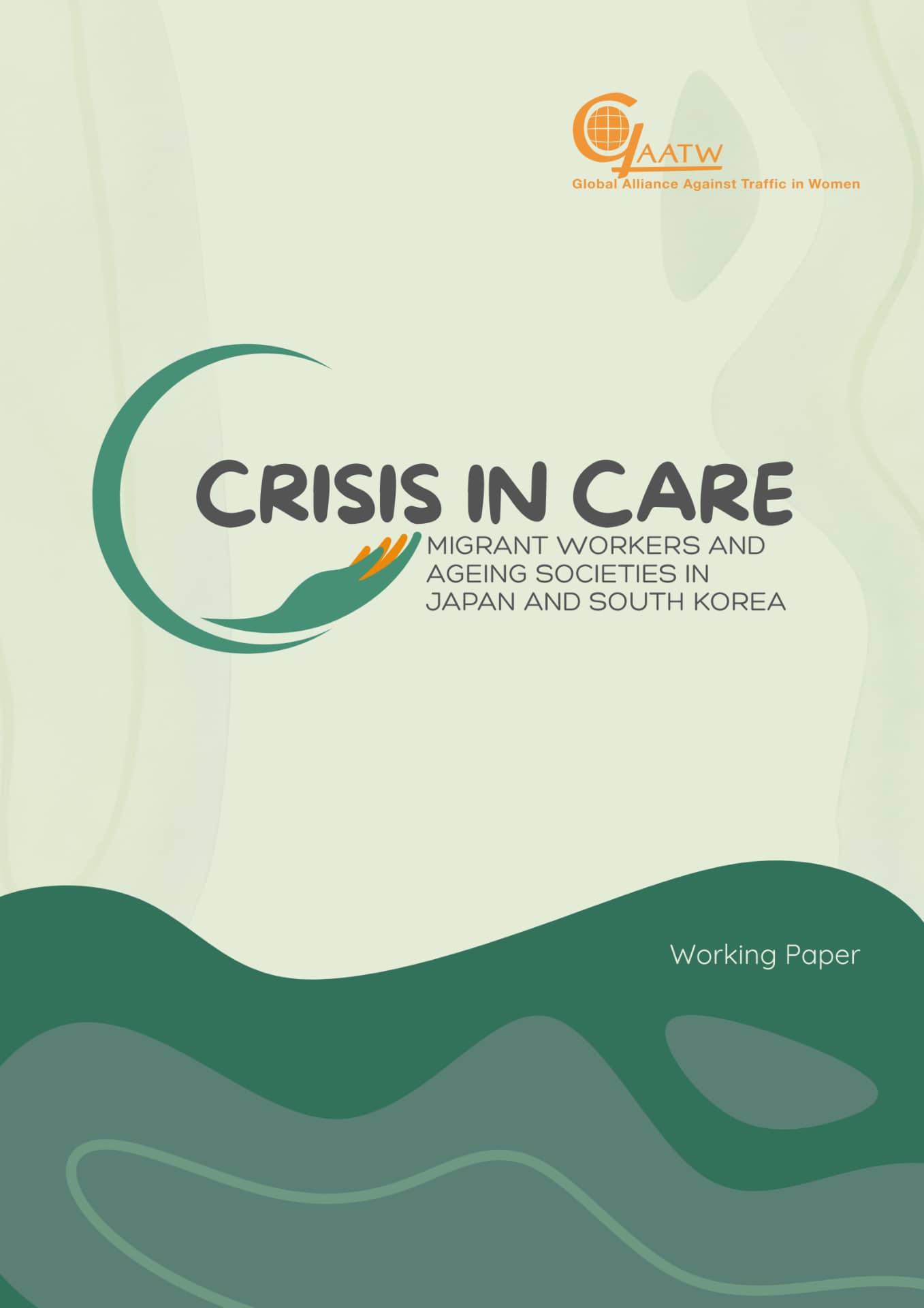
Crisis in Care: Migrant Workers and Ageing Societies in Japan and South Korea
- Details
As more and more countries confront the challenges posed by ageing populations and evolving family structures, there is an increasing reliance on migrant workers to fill essential roles within the care sector. However, state programs often categorise this form of labour as low-skilled and temporary, providing limited labour protections and exacerbating the precariousness faced by migrant workers.
This working paper examines how care work is defined, structured, and governed in Japan and South Korea, and how these frameworks shape the experiences of migrant care workers. It unpacks the demographics driving the demand, the policies and pathways governing migrant labour for care work, and the difficult working conditions that result from the devaluation of care. It also emphasises the crucial role of civil society in offering support and broadening its advocacy for migrant rights.
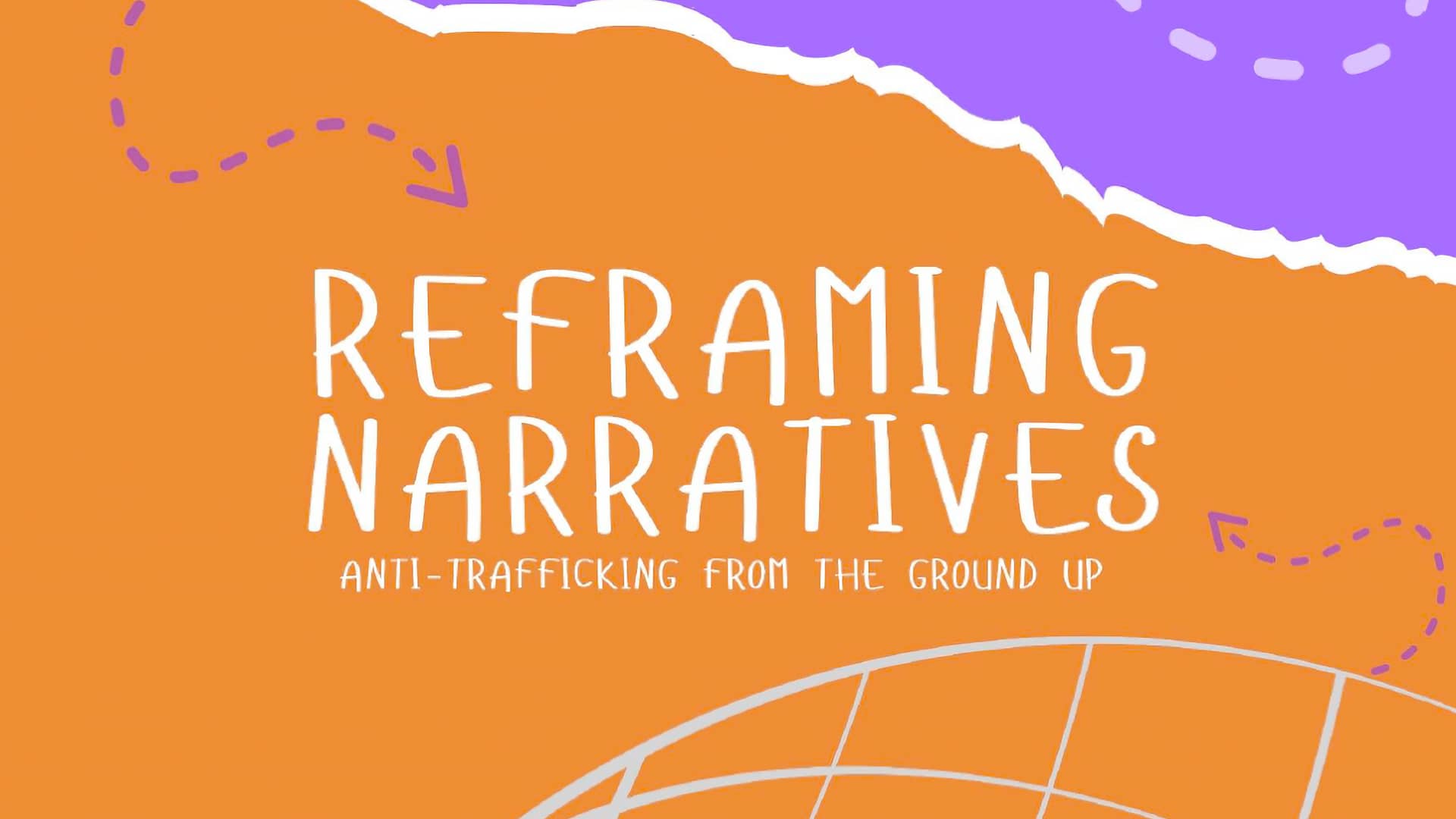
Reframing Narratives: Anti-trafficking from the ground up
- Details
We are excited to introduce our new publication, Reframing Narratives: Anti-trafficking from the ground up, an annual publication by GAATW members. The series offers a unique GAATW perspective on emerging anti-trafficking issues, focussing on the experiences and efforts of members and allies rather than ranking responses or estimating case numbers. It aims to foster dialogue across global movements, connecting those in fields such as migration, women’s rights, labour organising, climate change, corporate accountability, and conflict with anti-trafficking work.
Our inaugural issue, (In)formal Pathways to Justice, examines the mechanisms that influence migrant and trafficked individuals' access to justice, highlighting both formal and informal avenues. It emphasises the protections provided by formal justice systems for exploited migrant women while acknowledging that many seek alternative paths for redress and safety. The issue focuses on the experiences of practitioners working on behalf of migrant women, exploring their motivations and outcomes. Overall, it prioritises the perspectives of migrant women and their many (in)formal pathways to justice.
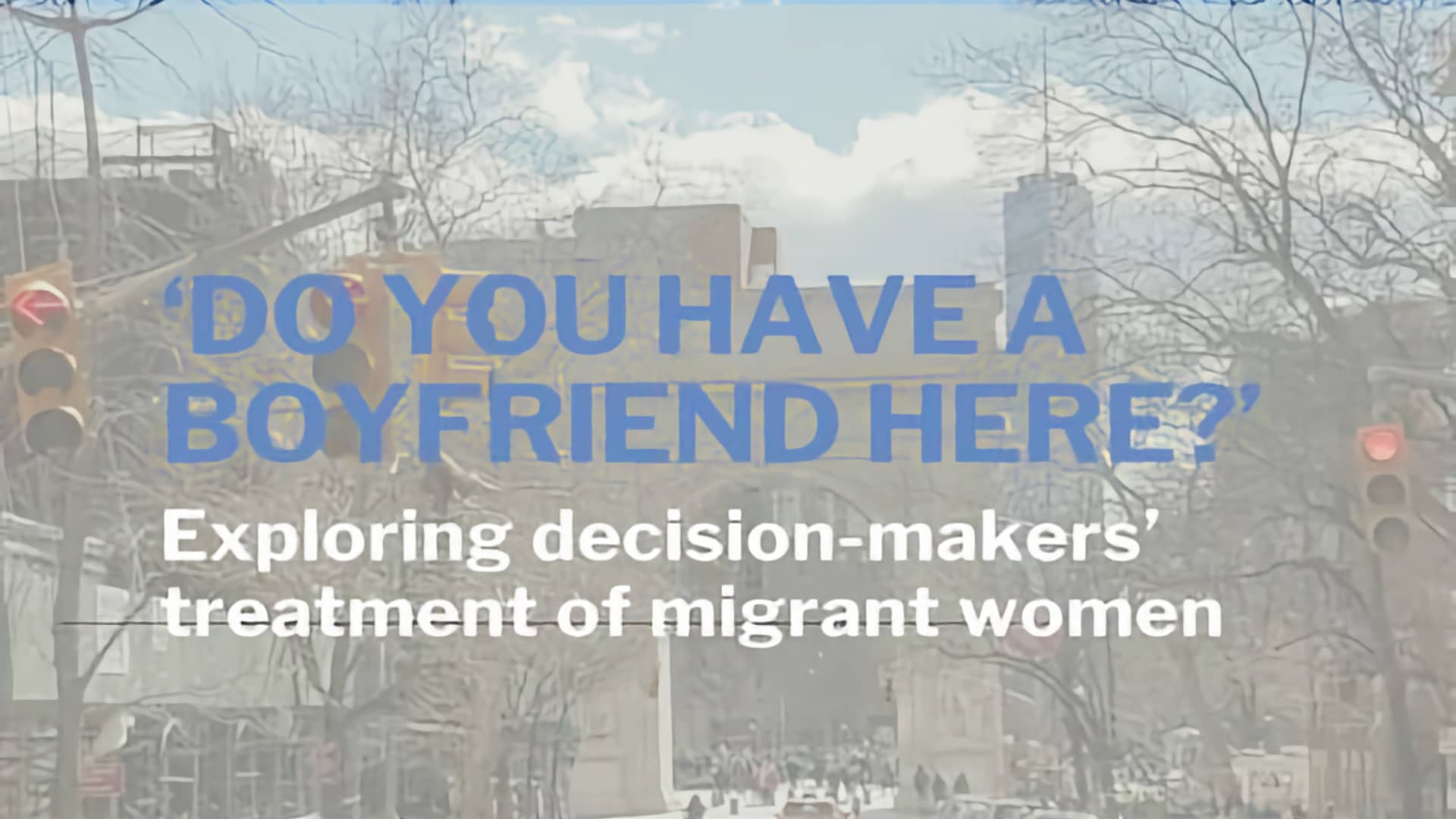
"Do you have a boyfriend here?”: Exploring the Impact of Stereotypes and Prejudices in Decision-Making on Access to Justice for Migrant Women
- Details
Over the past two decades, GAATW has consistently explored issues related to access to justice for migrant and trafficked women who have struggled with judicial processes due to discriminatory practices that prevent them from claiming their rights. This new report highlights the stereotypes and prejudices of decision-makers that continue to affect the ability of migrant women to access justice.
Drawing on insights from a range of previous work including consultations with women migrant workers across Asia, Africa, and Latin America, this report explores the subjectivity of decision-makers — from officials to non-traditional spokespersons. The key findings highlight that stereotypes related to migrant women’s backgrounds, work, and personal choices directly impact their access to justice.
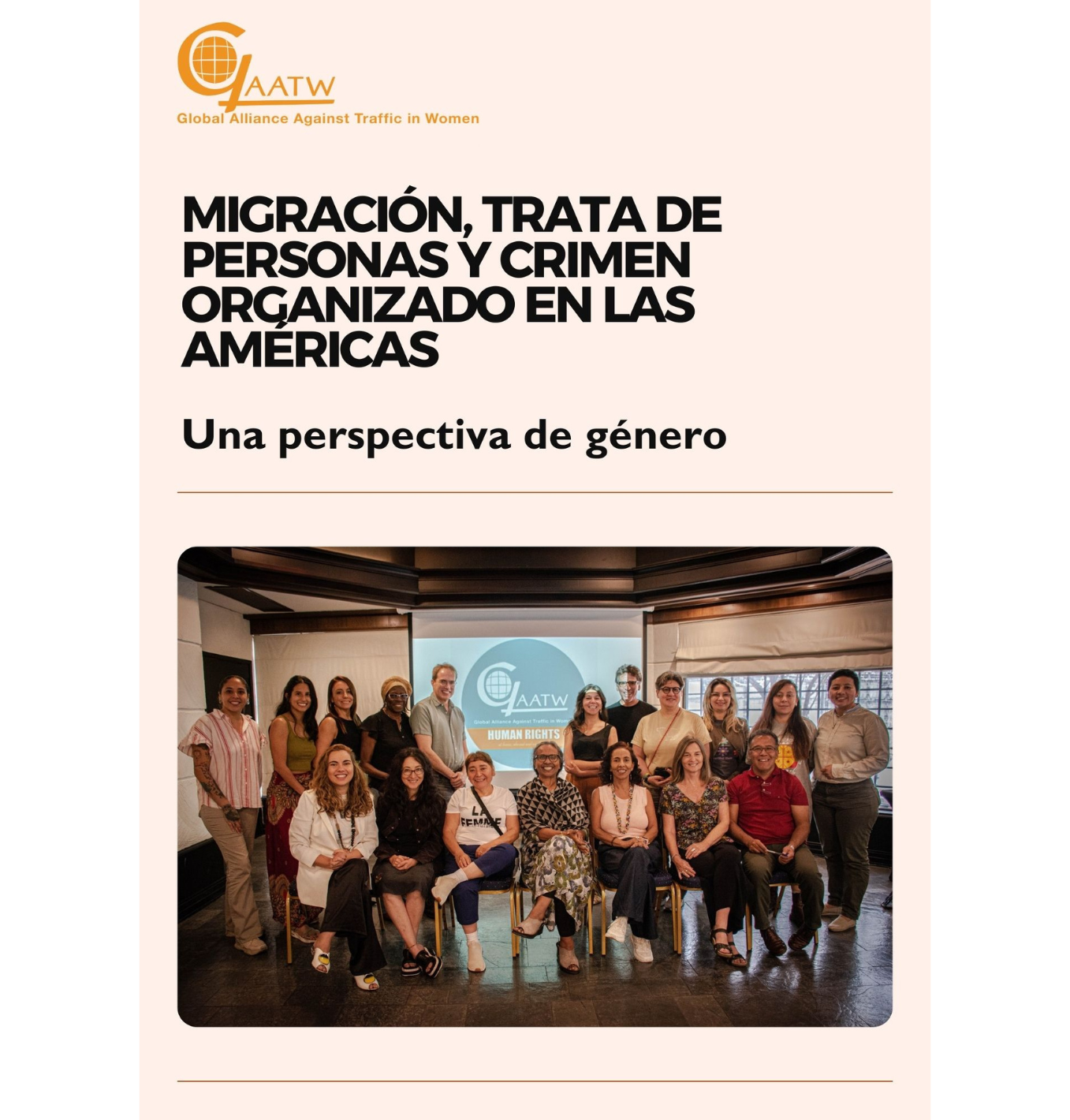
Migration, Human Trafficking and Organised Crime in the Americas: A gender perspective
- Details
The Latin American and Caribbean Network (REDLAC) of the Global Alliance Against Trafficking in Women is made up of 14 civil society organisations operating from nine countries in the region. Its areas of work include prevention and direct assistance to victims of trafficking, addressing the commercial sexual exploitation of children and adolescents, defending the human rights of migrant women and sex workers, and the labour rights of workers in different sectors. As a whole, REDLAC carries out information campaigns and participates in political advocacy actions at the national and regional levels.
The current socio-political context in which organisations operate is highly complex and multifaceted, characterised by institutional crises, social inequalities and the growing influence of organised crime – all of which have a direct impact on the lives of millions of people. The region continues to face structural challenges, such as corruption, violence and economic instability, exacerbating social vulnerabilities in countries such as Venezuela, Argentina, Ecuador, Bolivia, Chile, and Peru. With frequent changes of government, these countries have faced acute political instability that has eroded democratic institutions and led to a decline in human rights and civil liberties.
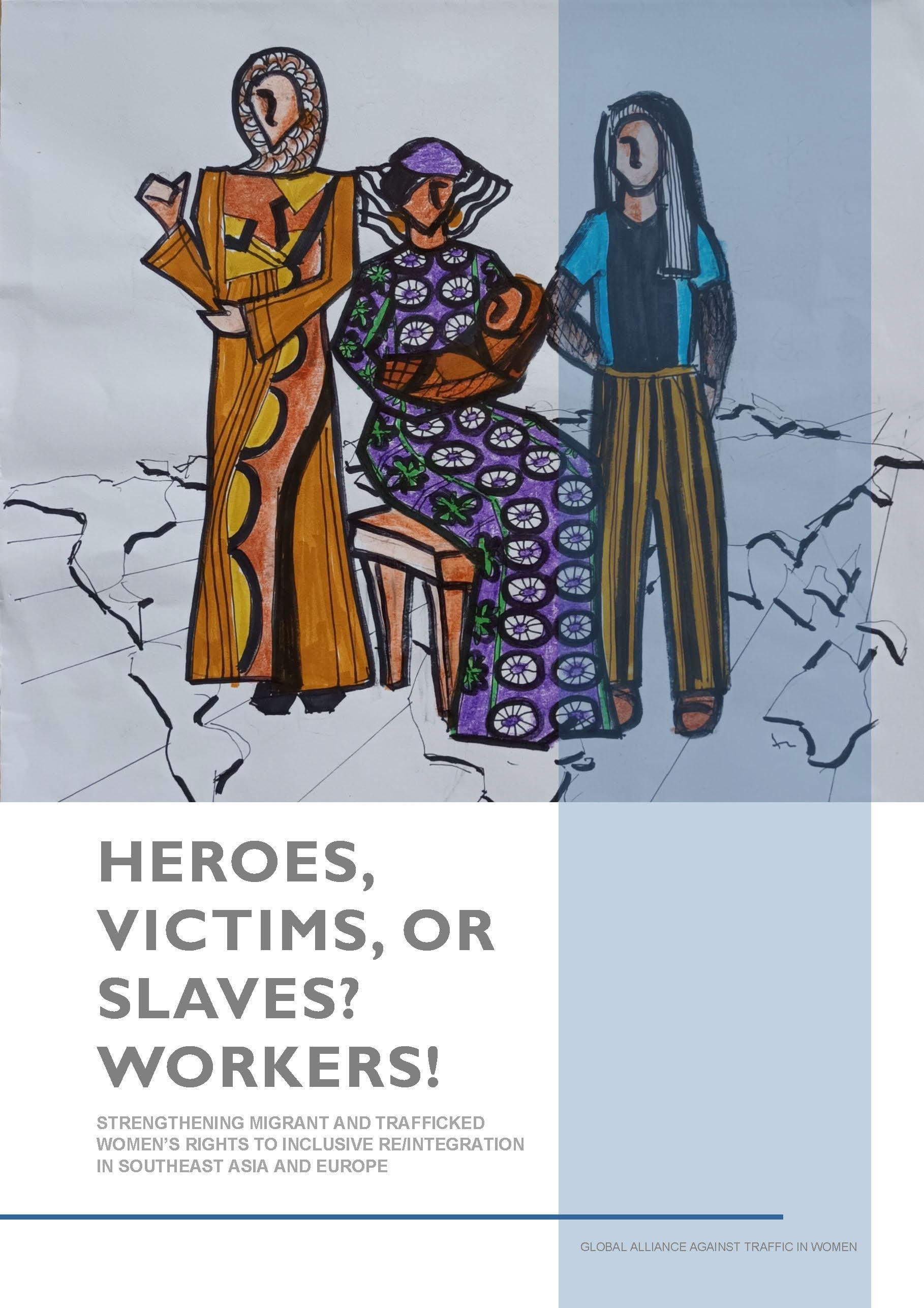
Heroes, Victims, or Slaves? Workers! Strengthening migrant and trafficked women’s rights to inclusive re/integration in Southeast Asia and Europe
- Details
In the past two decades, the migration and trafficking of women from Southeast Asia to Europe has received relatively little attention from donors, policymakers, and NGOs, compared to other migration routes. Yet Southeast Asian women continue going to Europe for work or marriage. What is their journey? Do they settle in Europe and how do they live there? Do they return to their home countries and how do they resume the life they had left behind? How do communities, societies, and governments view migrant and trafficked women?
Our new report explores these questions not only to find their answers but also to challenge what we know and how we think about women, migration, labour, and trafficking today. It describes the main challenges that migrant and trafficked women from Southeast Asia face in their socioeconomic inclusion (or re/integration) in Europe and upon return to their country of origin. It highlights examples of government and NGO programmes to support women’s socioeconomic inclusion or re/integration, as well as the women’s own understanding of the meaning of these words. It concludes with a number of broad recommendations to governments in countries of origin and destination to ensure that women’s migration benefits not only governments, businesses, and brokers, but, most of all, the women themselves.
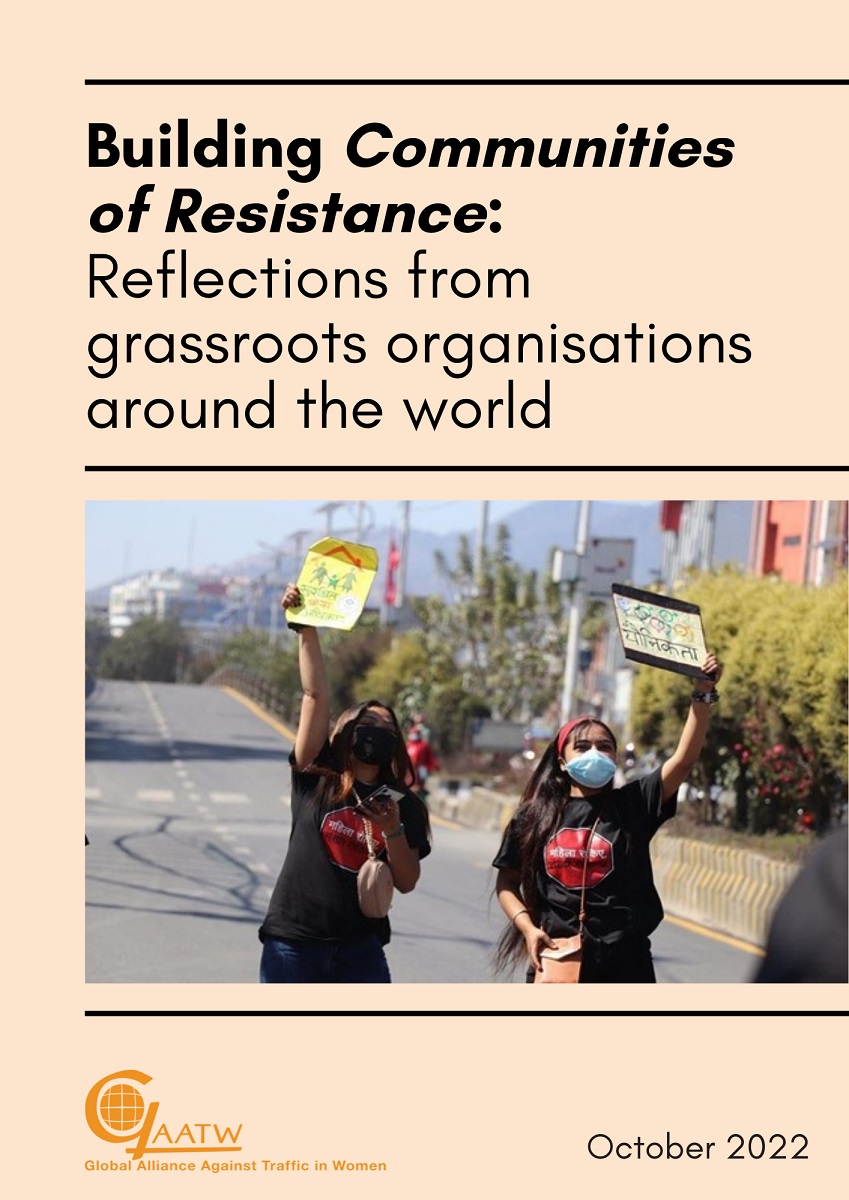
Building Communities of Resistance: Reflections from grassroots organisations around the world
- Details
This report is the result of a collective effort to pause, look inwards, and reflect on the process of transformative change. It collates a series of insights, challenges, and lessons learnt by and with ten grassroots organisations from Latin America, Europe, Africa, and Asia. These organisations work closely with different communities – refugees, LGBTIQ+ people, farmers, domestic workers, girls, and adolescents – and engage in movement-building work.
The report summarises their approaches to co-creating knowledge with communities and their principles and strategies of storytelling, meaningful participation and active listening, and building the collective power of communities and movements. It highlights our shared commitment to support marginalised groups towards realising their change agendas in a participatory, equitable, and democratic manner.
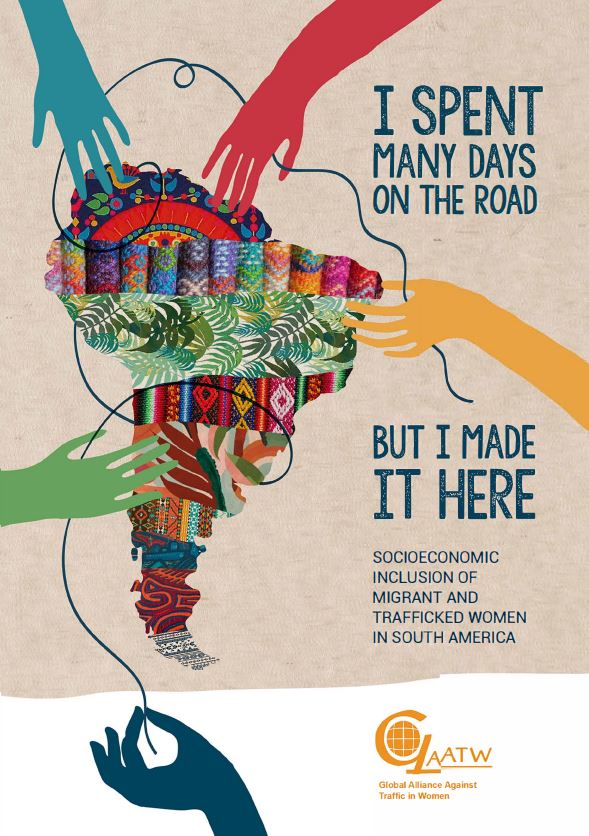
‘I spent many days on the road but I made it here’: Socioeconomic inclusion of migrant and trafficked women in South America
- Details
This report highlights how migrant women's experiences of social inclusion and access to the labour market are shaped by their gender, ethnicity, and migration status.
After difficult migration journeys, including spending days on the road, sleeping on the streets, going without food, facing racist or xenophobic behaviours, and fear of sexual attacks, many women found themselves employed in occupations that were below their skill levels and therefore turned to employment in the informal economy which was often gendered work in the domestic, care and cleaning sectors. In these working conditions, women were often subjected to limited or no access to social protections and labour rights, abuse, exploitation, and mistreatment.
Furthermore, women were still expected to perform responsibilities of unpaid care work of care giving and household work for their families in addition to being breadwinners which can affect their physical, mental, and emotional health and cause “time poverty” where the very idea of free time does not exist. Oftentimes, even if women were given the opportunity to access government social programmes there were often barriers such as complex paperwork and procedures, lack of information about them among migrants, language barriers, and racist attitudes.
